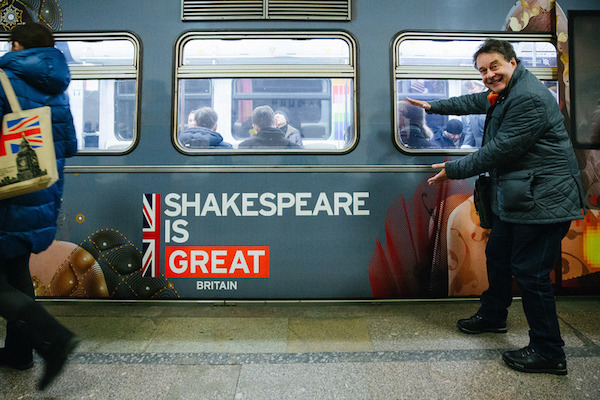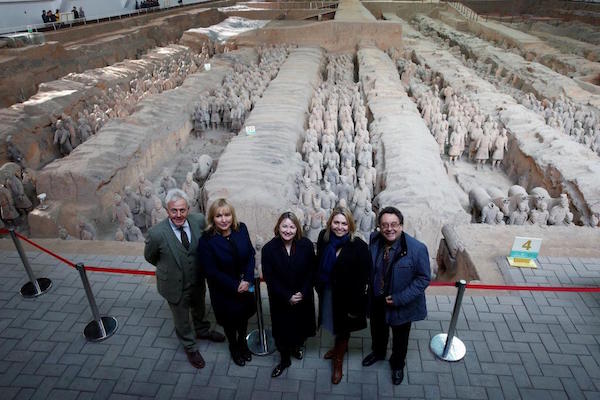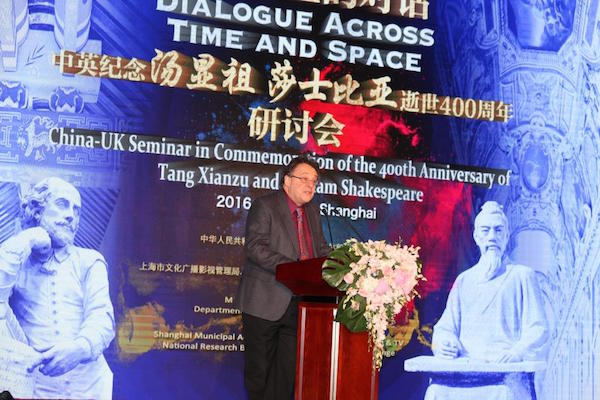I arrived in Moscow early Tuesday evening: temperature – 10c, it was snowing. The following Sunday I flew direct to Shanghai, arriving late evening: temperature 16c, unseasonably warm, atmosphere horribly polluted.
That was merely the contrast in the weather! It remained mercilessly cold in Moscow, and relentlessly warm and polluted in both Shanghai and Xi’an.
But there were numerous other startling contrasts in this strenuous two country visit, principally in the strategic relationship the UK has with both countries. The dialogue between UK and Russian governments is virtually non-existent, the relationship in effect frozen, like the weather. The main channels for dialogue are through the arts, where the British Council's programme continues to strengthen bilateral ties in a way the politicians can only dream of, and education and science, alongside partners like the Science Museum. This is where the arts comes into its own – where it’s impossible or difficult for politics to go, viz Iran, Argentina. And now, of course, we have an important role in the Arts to play in redesigning the UK’s relationships with our European neighbours.
By contrast, in China, we find three cabinet ministers, multiple high level dialogues in the Arts and Creative Industries, Science and Innovation, Education, Sport and more, all as part of the High-Level People to People Dialogue, set up under the Cameron government, and now convening once a year, with much work happening in between. It’s all part of what both sides refer to as “the golden era” of UK/China relations: a stark contrast to the “ice age” of UK/Russia relations.
In Russia I was part of the UK’s delegation to the Non/Fiction Book Fair, where UK was the Country of Honour, an achievement in itself in current diplomatic circumstances. It was the culmination of the UK-Russia Year of Language and Literature which has connected the UK with over 17 million Russians. Sebastian Faulks, Julian Barnes, Andrew Davies (House of Cards, and War & Peace), Laline Paul and Emma Healey were all part of a distinguished party of twelve writers.
The occasion gave an opportunity for close engagement with Russian stakeholders including Mikhail Shvydkoy (Putin’s special adviser on cultural relations), a valuable link into the Kremlin. I also contributed a short speech on Shakespeare as a global brand.
I was delighted to experience the spectacular Shakespeare Lives branded train on the Moscow Metro!
By contrast, in China everything was as ever much more formal, but I did sense a genuine warmth in the overall relationship, which I found encouraging. Our Chinese hosts really went out of their way to make us feel welcome.
Karen Bradley, the relatively new Culture Secretary, led her side of proceedings with considerable panache, including an appearance on the spectacular set of Punchdrunk’s Macbeth-derived “Sleep no More”, which was about to premiere in Shanghai.
One theme inevitably common to both legs of this trip was Shakespeare. We attended a high level Shakespeare Forum, which examined theoretical links between Shakespeare and China’s iconic writer Tang Xianzu of Peony Pavilion fame, who shares the same anniversary.
I gave a short speech, followed by Karen Bradley and the Chinese Vice Premier, who has led the Chinese side of the Dialogue since the outset.
My final leg was a short and spectacular trip to Xian in support of Karen Bradley and Sharon Glanville of Museums Liverpool, as they cemented the deal to bring the extraordinary Terracotta Warriors (not ALL of them, but still….) to Liverpool in 2018.


